Describe your travels with these unique and beautiful travel words from different languages around the world.
I love travelling and I love languages, so imagine my excitement when I came across a treasure trove of travel words and wanderlust synonyms that describe how we feel before, during, and after we travel.
Just like a photo can’t fully capture what it feels like to stand on the edge of a fjord, neither can ‘wanderlust’ fully express how we feel when we crave our next adventure. These travel words are literary gems which have been gathered from languages around the world. From Japanese to Swedish, Latin to Greek, travel brochures of the future will be peppered with travel words like of resfeber, livsnjutare, and coddiwomple.
Wanderlust meaning
As you’ll see in the list below, every language has its own variation of how it explains and defines what wanderlust is. In English, wanderlust means to have a strong desire for or impulse to travel, wander and explore the world.
Learn a language from home
During these times it can be bittersweet to think about travelling when we have to stay at home and practice social distancing, let this list of wanderlust-filled words inspire you to a learn a language from home and prepare yourself for your next trip. Being travel fluent is the best way to enrich your travel experiences.
Without further ado, here are 28 beautiful travel words you should slip into your vocabulary. When you’re done, take and look at this collection of inspirational travel quotes. I’d love to hear which ones are your favourites in the comment section below.
1. Resfeber (n.)
Origin: Swedish
Definition: The meaning of resfeber refers to the restless race of the traveller’s heart before the journey begins when anxiety and anticipation are tangled together.
It’s that moment just after you buy your plane tickets and excitement and fear floods in all at once, creating a mixture of emotions that make you feel anxious or physically ill.
Carry this beautiful word with you with my Resfeber tote bag available in black and white. Buy it here.
For more inspiration, don’t miss my guide to cool gifts for language learners and the best travel accessories and travel gadgets here.
2. Sonder (v.)
Origin: Unknown
Definition: The realisation that each passerby is living a life as complex as your own.
The full definition, taken from The Dictionary of Obscure Sorrows reads:
[Sonder is] the realization that each random passerby is living a life as vivid and complex as your own—populated with their own ambitions, friends, routines, worries, and inherited craziness—an epic story that continues invisibly around you like an anthill sprawling deep underground, with elaborate passageways to thousands of other lives that you’ll never know existed, in which you might appear only once, as an extra sipping coffee in the background, as a blur of traffic passing on the highway, as a lighted window at dusk.
I often feel this way when I pass groups of strangers, speaking a language that is completely foreign to me, and realise just how incredibly big the world is. We all have a life that is full of different connections, memories and possibilities. That’s sonder.
The internet suggests this may not be a real word, either way, the concept is beautiful.
3. Solivagant (adj.)
Origin: Latin
Definition: Wandering alone. A solitary adventurer who travels or wanders the globe.
Not all those who wander are lost, but all those who wander alone are definitely solivagants. From the Latin word solivagus, meaning lonely or solitary, solivagant describes anyone who enjoys meandering around new countries, alone, in order to take it all in.
4. Fernweh (n.)
Origin: German
Definition: This German word,means an ache to get away and travel to a distant place, a feeling even stronger than wanderlust. If wanderlust wasn’t poetic enough for you, allow me to present fernweh, a German word that literally translates to “distance-sickness.”
While someone with wanderlust might sit at home and happily fantasise about all the places they might visit, someone with fernweh would feel a deeper sense of longing, a sort of homesickness but for foreign lands. For me, it’s wanting to be back in Rome. Fernweh is one of most those beautiful untranslatable words I’ve ever come across.
Carry this beautiful word with you with my Fernweh T-Shirt available in men’s and ladies styles and black or white. Buy it here.
For more inspiration, don’t miss my guide to cool gifts for language learners and the best travel accessories and travel gadgets here.
5. Sehnsucht (n.)
Origin: German
Definition: A wistful longing and yearning in the heart for travels past and future.
One author translated it as the “inconsolable longing in the human heart for we know not what.” Another compared it to “a longing for a far-off country, but not one which we could identify.”
When you return from travelling and wish you could do it all over again and experience every moment like it was the first.
6. Eleutheromania (n.)
Origin: Greek
Definition: An intense and irresistible desire for freedom.
We all want to be free, and travelling shows us how the freedom in the lives of others that is different from our own. Eleutheromania describes a person who has a strong desire and obsession for freedom.
7. Cockaigne (n.)
Origin: French, Middle French
Definition: An imaginary land of luxury and idleness.
Every destination seem like a wonderland or cockaigne before you set foot there and see it for yourself.
The term cockaigne” comes from the Middle French phrase pais de cocaigne, which literally means “the land of plenty.” The word was first popularised in a 13th-century French poem that is known in English as “The Land of Cockaigne.”
8. Quaquaversal (adj.)
Origin: Latin
Definition: Moving or happening in every direction instantaneously.
This perfectly describes my state when I’m in a new place and want to see and do everything at once.
9. Dérive (n)
Origin: French
Definition: A spontaneous and unplanned journey where the traveller leaves their life behind allows themselves to be guided by the landscape and architecture.
Literally translated as “drift”, dérive is the idea that even if you drift you will end up on the right path. This could describe life in general, but it also describes small journeys. When you’re wandering through a new city and you just happen to wander on a path that takes you to great discoveries.
10. Ecophobia (n.)
Origin: English
Definition: This word came into English word via Greek and means a fear or dislike of one’s home.
I don’t dislike my home, but recently I can’t stop thinking about going back to Lofoten, Norway.
11. Numinous (adj.)
Origin: Latin
Definition: A powerful feeling of both fear and fascination, of being in awe and overwhelmed by what is before you.
Originally, this word refers to having a strong religious or spiritual quality; but it can also be used to describe how you feel when you see things that are so beautiful that you realise how wonderful the world is and the small part you play in it. Hiking Trolltunga was a numinous moment for me.
12. Schwellenangst (n.)
Origin: German
Definition: Fear of crossing a threshold to begin a new chapter.
From schwelle (“threshold”) and angst (“anxiety”), this word explains that feeling you get before deciding to set out on a new journey. Argh! Did I make the right decision?
13. Strikhedonia (n.)
Origin: Greek
Definition: The pleasure of being able to say “to hell with it”.
Another personal favourite word on this list. Not only is it the joy I feel, but the freedom to be able to say “to hell with it” and book that next trip and embark on your next adventure.
14. Vagary (v.)
Origin: Latin
Definition: A whimsical or roaming journey.
From Latin, vagārī meaning “to roam”, is an unpredictable idea, desire or action to travelling without knowing the destination, and not caring.
15. Livsnjutare (n)
Origin: Swedish
Definition: Literally meaning, “enjoyer of life”, this describes a person who loves life deeply and lives it to the extreme.
If you’re reading this, that’s probably you! Need more inspiration?
16. Commuovere (v.)
Origin: Italian
Definition: To stir, to touch, to move to tears.
Just like the euphoric emotions I felt whilst whale watching.
17. Sturmfrei (adj.)
Origin: German
Definition: The freedom of being alone and being able to do what you want.
Literally translating to “stormfree”, this describes the freedom of not being watched by others and being alone in a place where you have the freedom and ability to do what you want.
Another great German word. Travelling solo can be especially rewarding because you have complete control. No compromises, no one else to please. Just you and the big wide world.
18. Saudade (n.)
Origin: Portuguese
Definition: This Portuguese word describes the emotional state of nostalgia and longing for someone or something distant. Saudade was once described as “the love that remains” after someone is gone.
Saudade is the recollection of feelings, experiences, places, or events that brought excitement and happiness but now triggers the senses and makes one live again.
19. Yūgen (n.)
Origin: Japanese
Definition: A profound and mysterious sense of the beauty of the universe.
An awareness of the Universe that triggers emotional responses too deep and powerful for words.
20. Acatalepsy (n.)
Origin: Greek
Definition: The impossibility of comprehending the universe.
Henry Miller said “One’s destination is never a place, but a new way of seeing things.” Do we ever really understand the world and what we see on our travels, and how they mould us? Sometimes, if at all, it takes time to discover how these things change our lives.
21. Trouvaille (n.)
Origin: French
Definition: A chance encounter with something wonderful.
Whether it’s stumbling across a hidden back street, a quaint cafe, or connecting with a local, trouvaille describes those magical moments we experience in our journeys.
22. Hygge (n.)
Origin: Danish
Definition: Pronounced hue-guh, hygge describes the warm feeling you get while enjoying the company of great friends and all life has to offer.
Hygge is the conscious appreciation of recognising everything you have and enjoying to the present moment.
23. Onism (n.)
Origin: Danish
Definition: The world is a big place as not everyone will get to see it. Onism describes understanding that we’ll never get to see it all. It’s the frustration of being stuck in just one body that can only inhabit one place at a time. I felt this way before going to Copenhagen!
Similar to the Swedish word ‘resfeber’, onism describes the feeling of knowing that you’ll never be able to see it all. They say that the more you travel, the harder it gets to stay in one place.
24. Novaturient (adj.)
Origin: Latin
Definition: A desire to change and alter your life.
This was exactly how I felt when I quit my job and moved to Rome. There was this strong urge that pulled me towards my dream of pursuing a life of speaking Italian and travelling. I knew I wouldn’t be living my life if I didn’t go.
25. Yoko meshi (n.)
Origin: Japanese
Definition: This untranslatable gem describes the stress of speaking a foreign language.
The Japanese word ‘meshi’ literally means ‘boiled rice’ and ‘yoko’ means ‘horizontal,’ together it means ‘a meal eaten sideways.’ The Japanese have created a beautiful way of describing the unique kind of stress you experience when speaking a foreign language. Furthermore, ‘yoko’ also references the fact that Japanese is normally written vertically, whereas most foreign languages are written horizontally. Clever, right?
Related: 69 Wonderful Japanese Expressions That Will Brighten Your Day
26. Selcouth (adj.)
Origin: Old English
Definition: When everything you see and experience is unfamiliar and strange, yet you find it marvellous anyway.
It’s that feeling you get when you travel to a foreign land and food, culture, customs, or language, is strange and different to everything you’ve experienced before, yet you love it and find it fascinating.
27. Eudaimonia (n.)
Origin: Greek
Definition: A state of being happy whilst travelling and everything feels great.
That intense excitement and appreciation when you travel and everything feels great. Seeing the Northern Lights was one of the best experiences of my life, a feeling I won’t forget.
28. Coddiwomple (v.)
Origin: English slang
Definition: To travel purposefully towards an unknown destination.
A brilliant word, coddiwomple is when you have a vague idea of your destination within a care for how long it takes to arrive. A great example is when you go hiking, you know you’ll eventually reach the summit, but every part of the trail along the way is just as beautiful. Like the time I hiked Norway’s Trolltunga.
If you enjoyed these words, then let wordsmiths Stephen King, Mark Twain and the Dalai Lama transport you around the world with these inspirational travel quotes or start using some of the beautiful untranslatable words from other languages.
For more inspiration, don’t miss my guide to cool gifts for language learners and the best travel accessories and travel gadgets here.
Want to know more about learning languages? Start here!
- 18 Unexpected Advantages & Health Benefits of Learning A Foreign Language
- The World’s Most Beautiful Untranslatable Words from Around the World: The Ultimate List A-Z
- 13 Ways to Seamlessly Integrate Language Learning into Your Daily Life
- What Type of Language Learner Are You? Your 4-Step Personalised Learning Plan
- 15 Top Language Learning Resources You Should Use
- 7 Reasons Why You Should Go on a Language Holiday
- 11 Life-Changing Reasons Why You Should Learn a Language
- How to Learn Your First Foreign Language in 8 Simple Steps: A Beginner’s Guide
- 42 beautiful Inspirational Quotes for Language Learners
- Language learning tips: 11 Polyglots Reveal The Secrets of Their Success
- Top 10 Best Ways to Learn a Language Better and Faster
- How to Learn Italian Before Your Trip
- Free Travel Phrase Guides
- How a ‘Potato’ improved my French Pronunciation
- How Many Languages are there in the World?
- Hilarious Idiomatic Expressions that Will Brighten Your Day
- 78 FREE Dictionaries to Learn a Language Fast [Free eBook Download]
- 22 KEY Travel Phrases That Will Transform Your Travels [Free Guide]
Over to you!
Which one of these travel words do you identify with the most? What others would you add?
Let me know using the comments section below or join me on social media to start a conversation.
Thanks for reading and I hope you enjoyed this post.
Like what you see? Subscribe using the form below to have all of my posts delivered directly to your email.


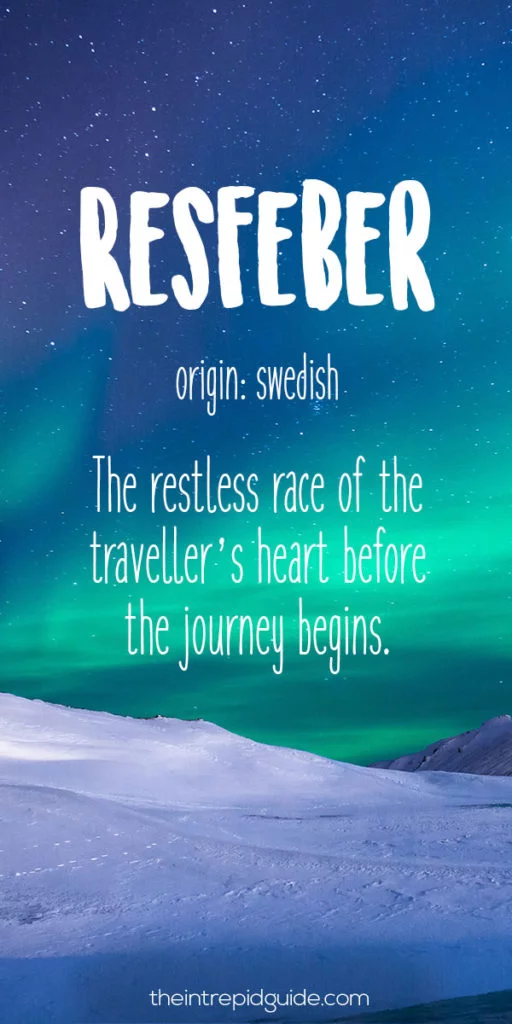
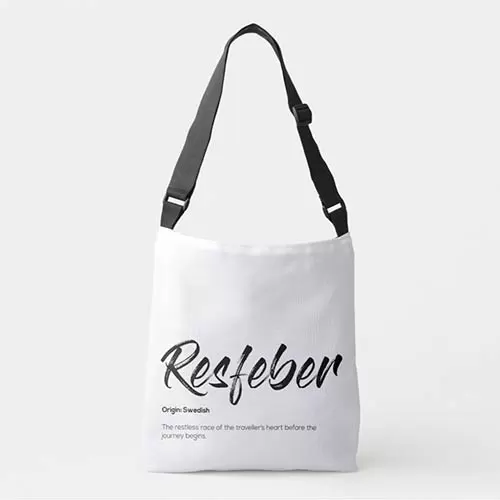
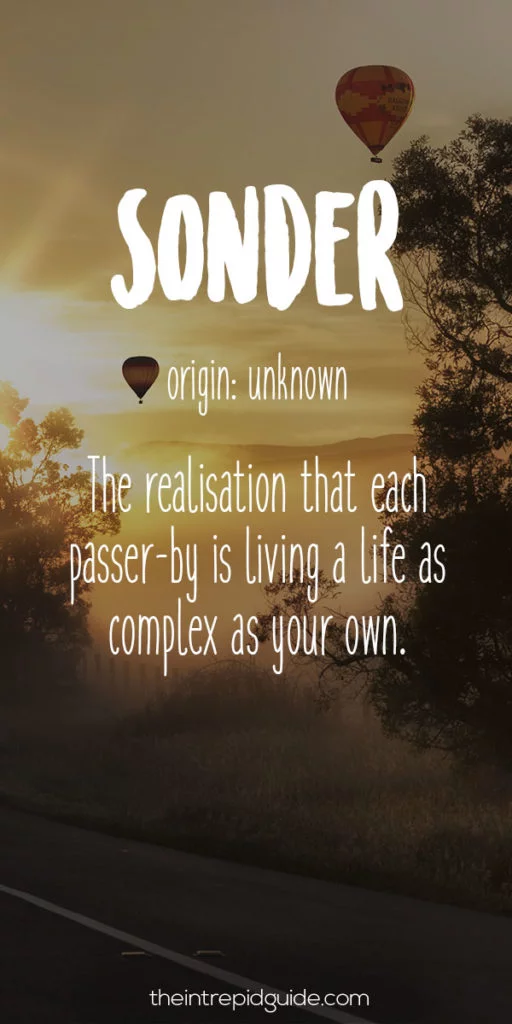
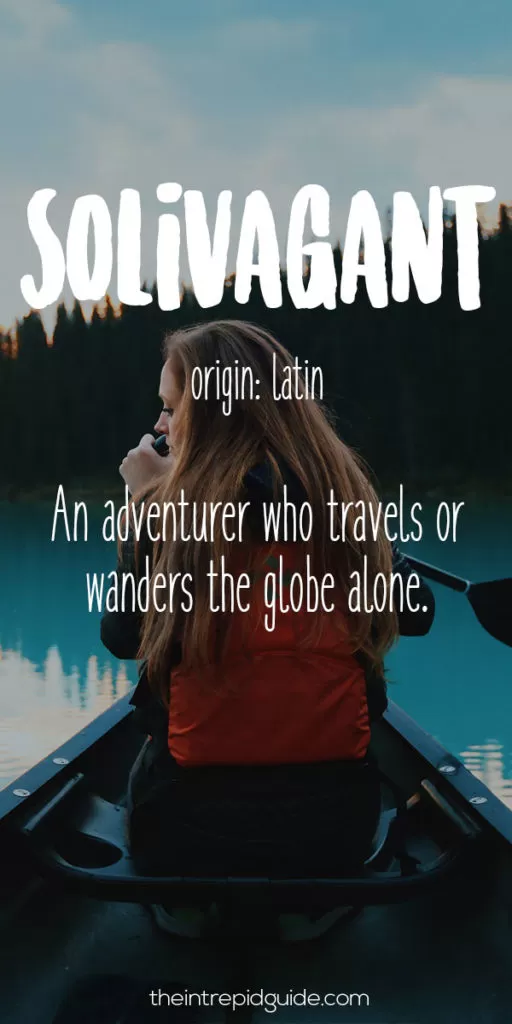
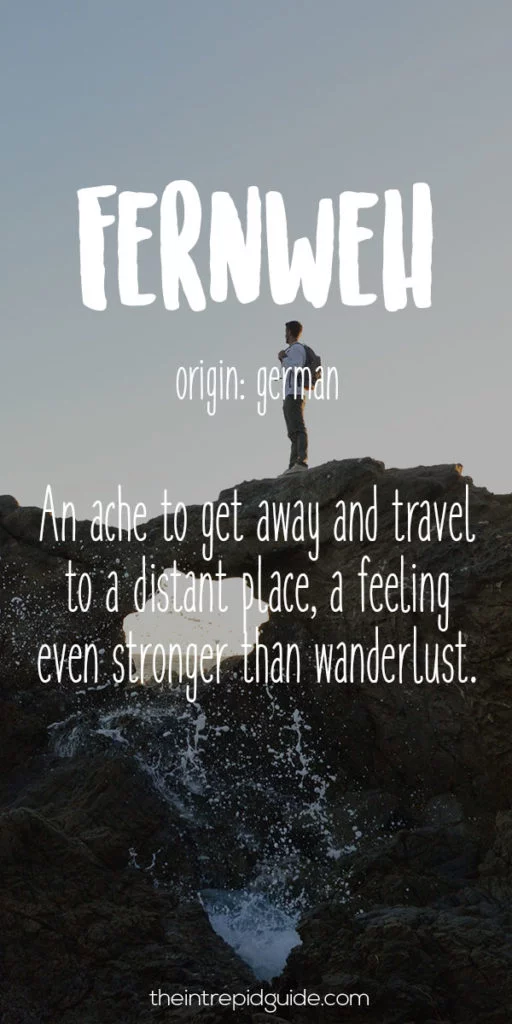

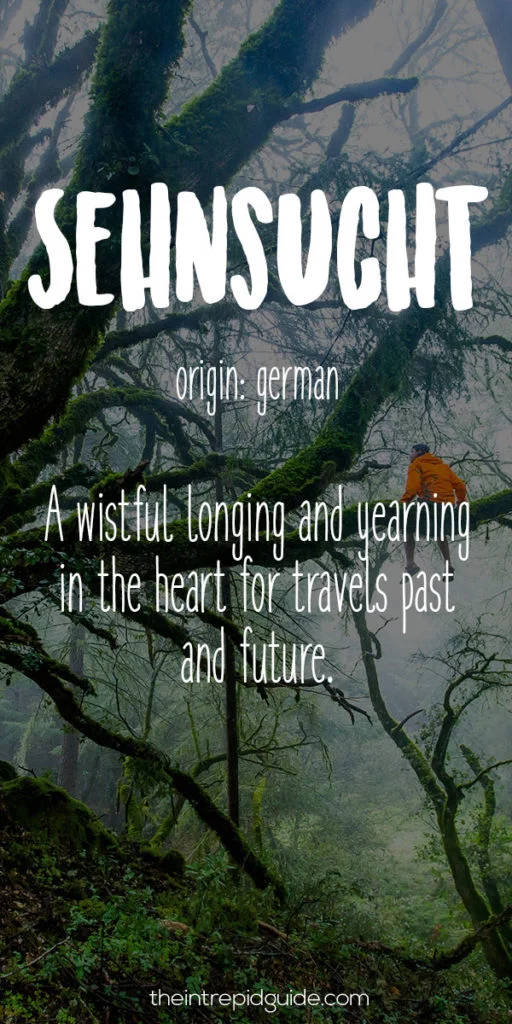


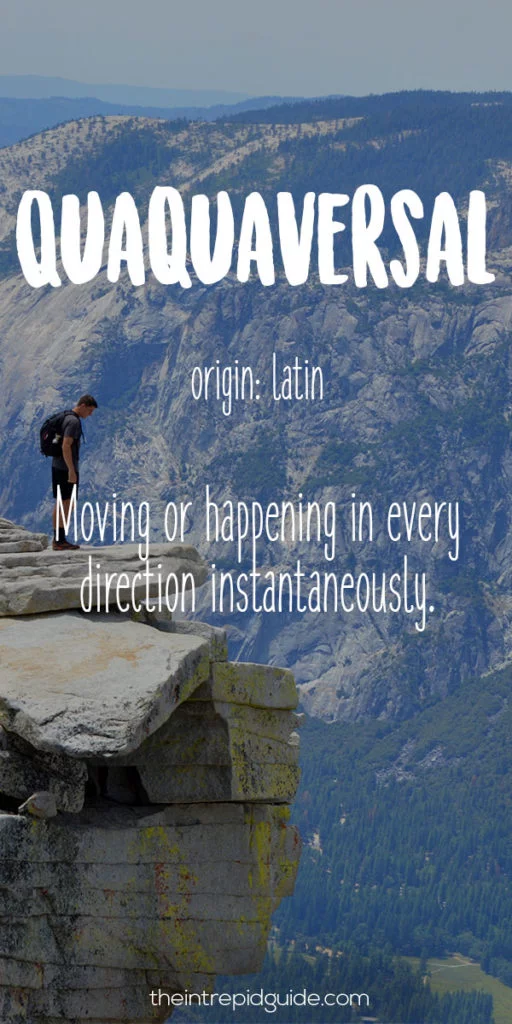
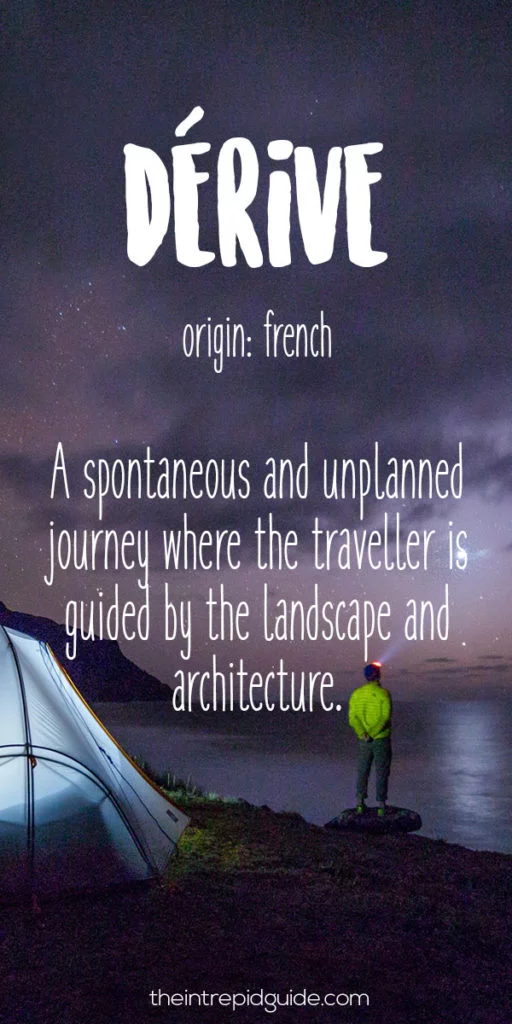
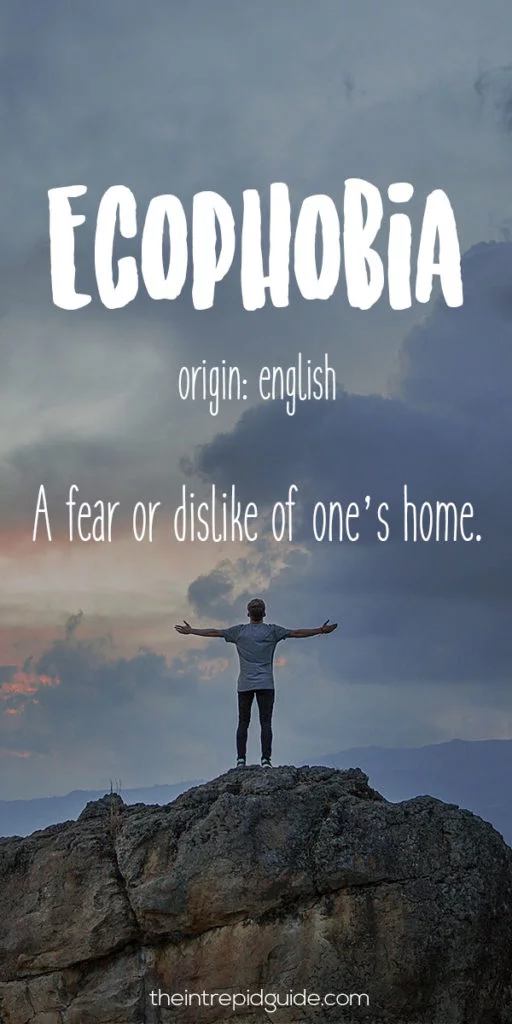
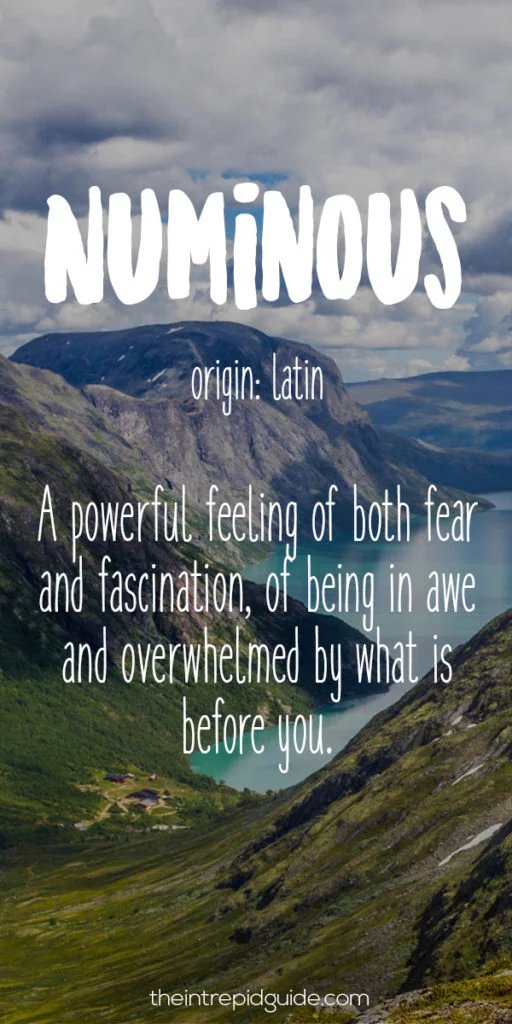
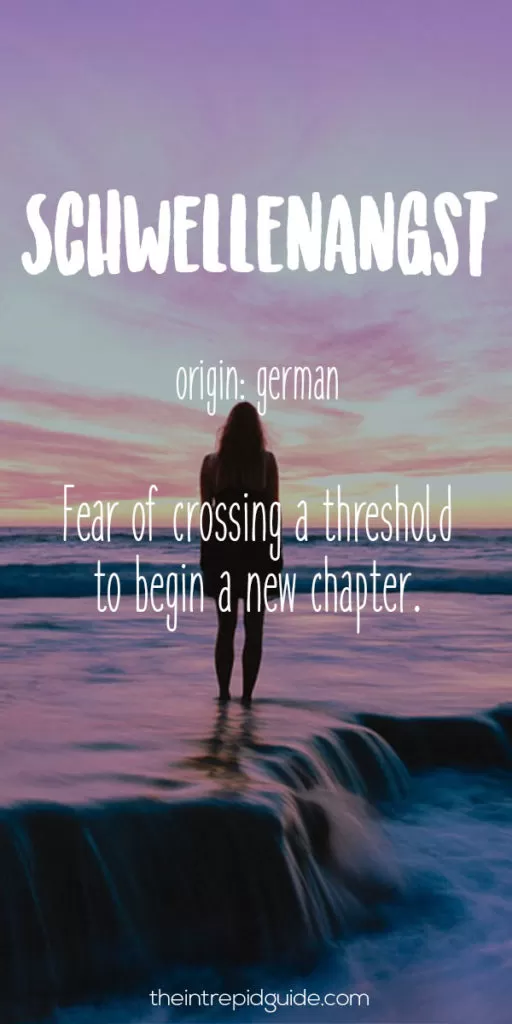

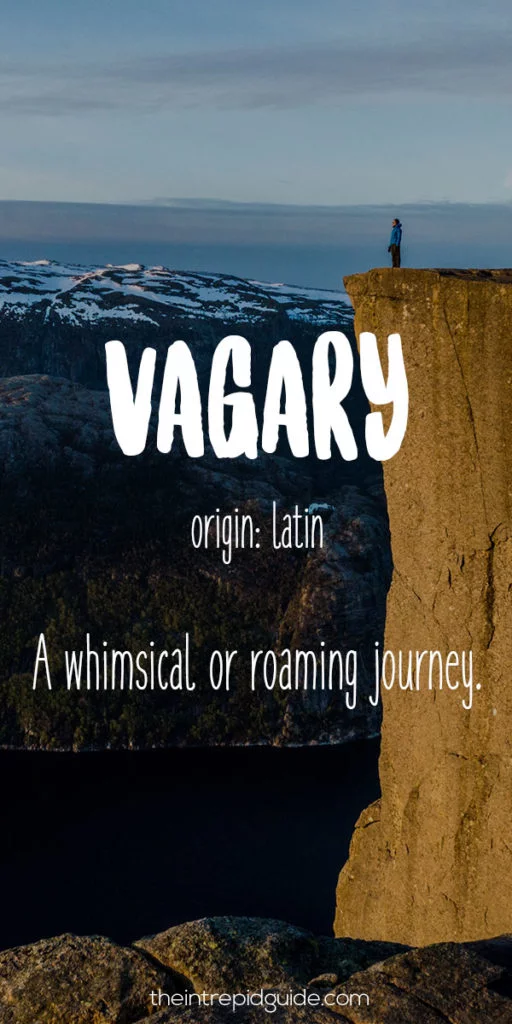
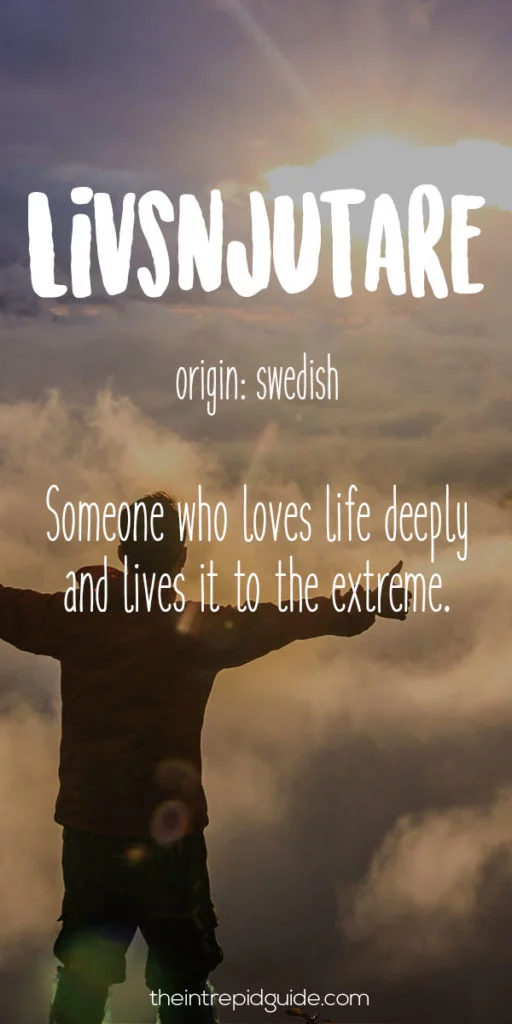

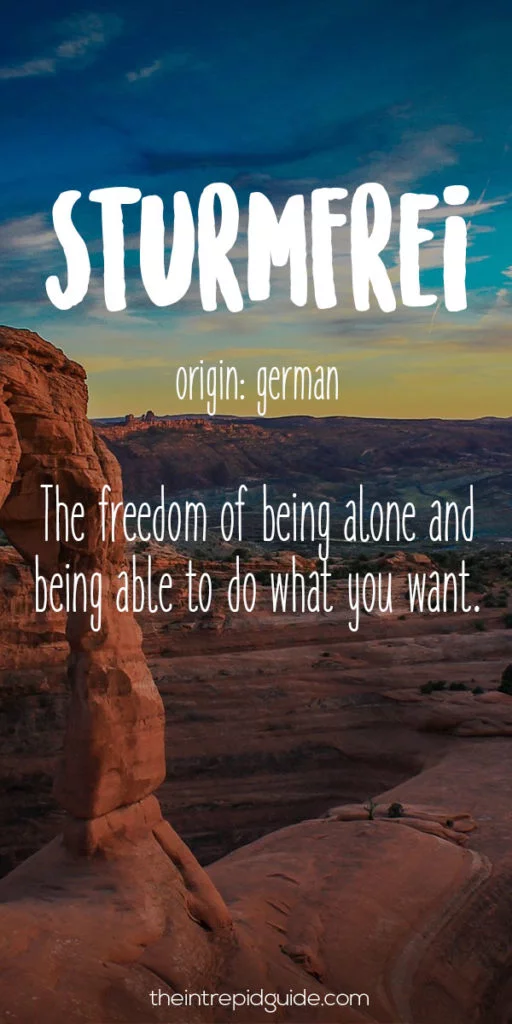
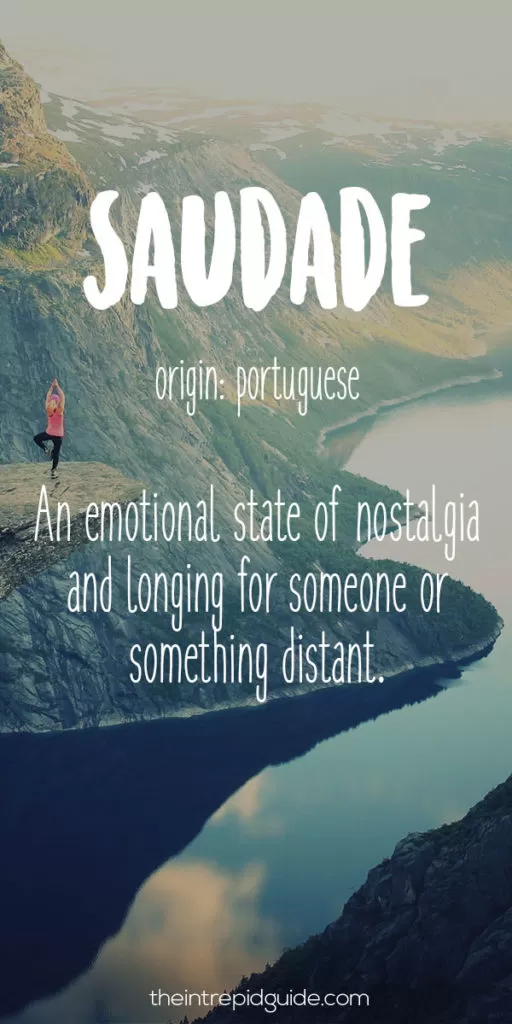
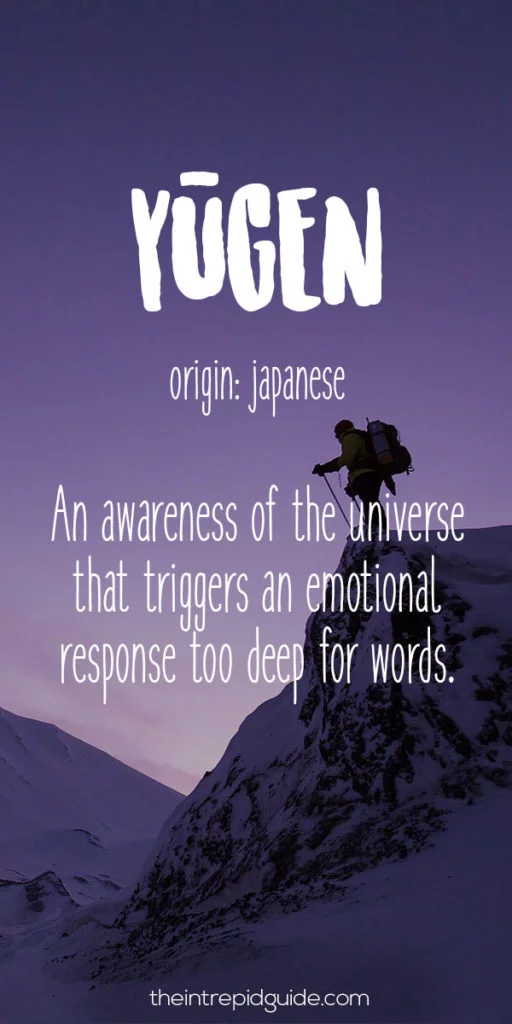
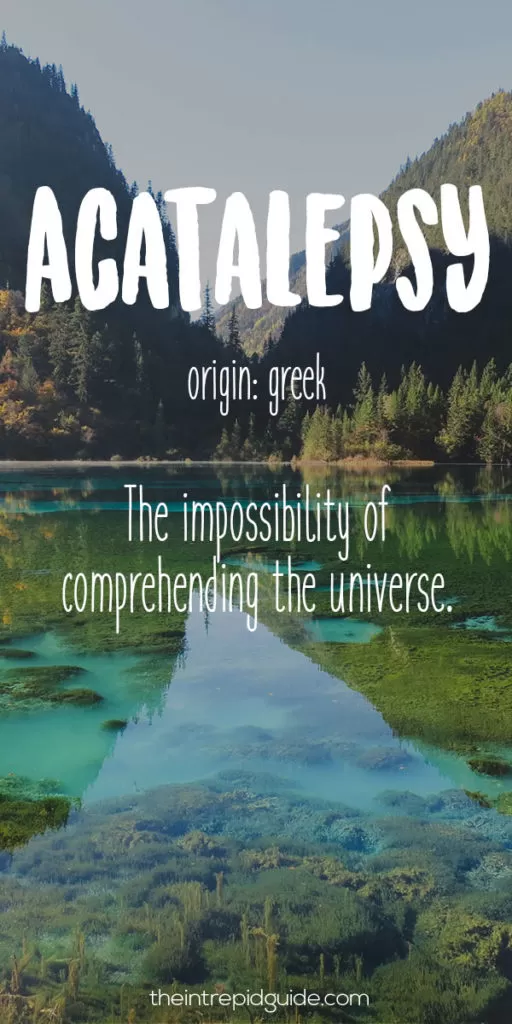


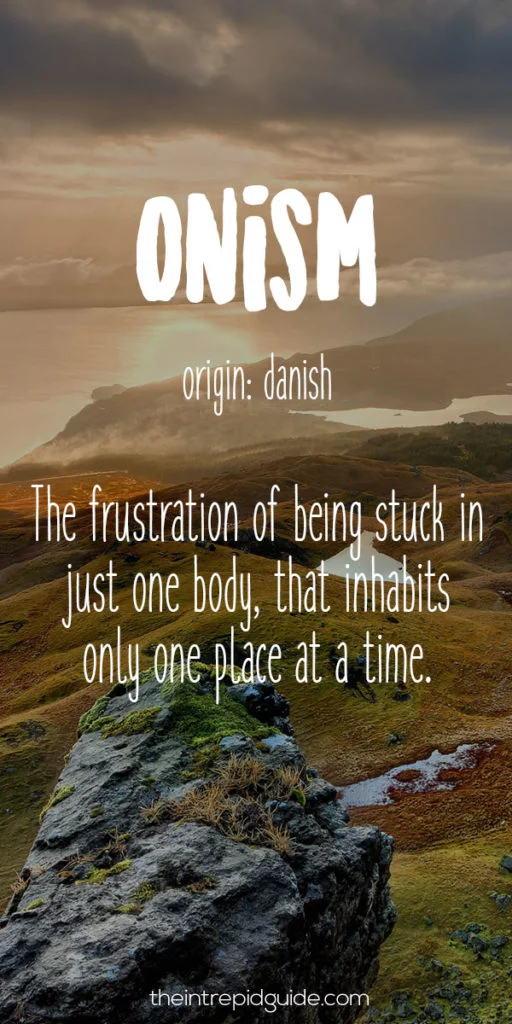
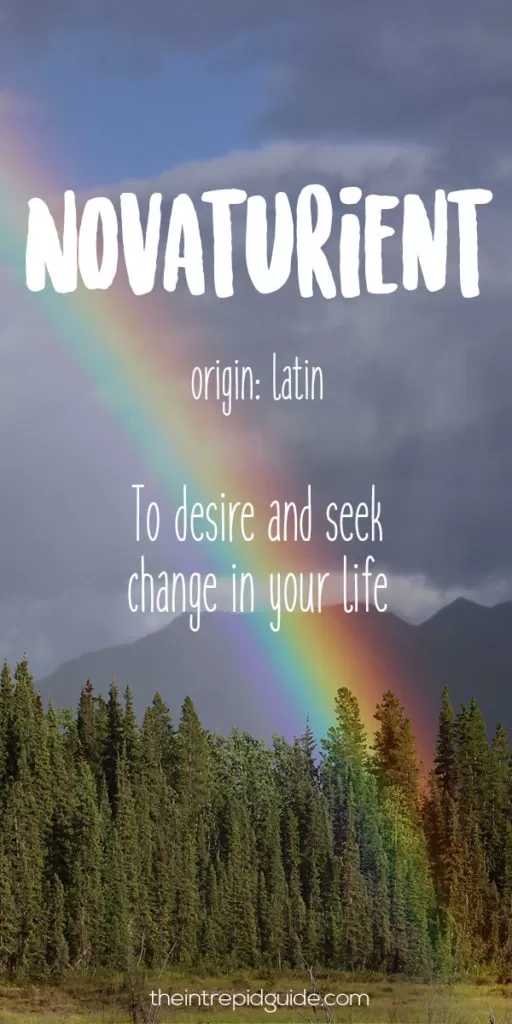
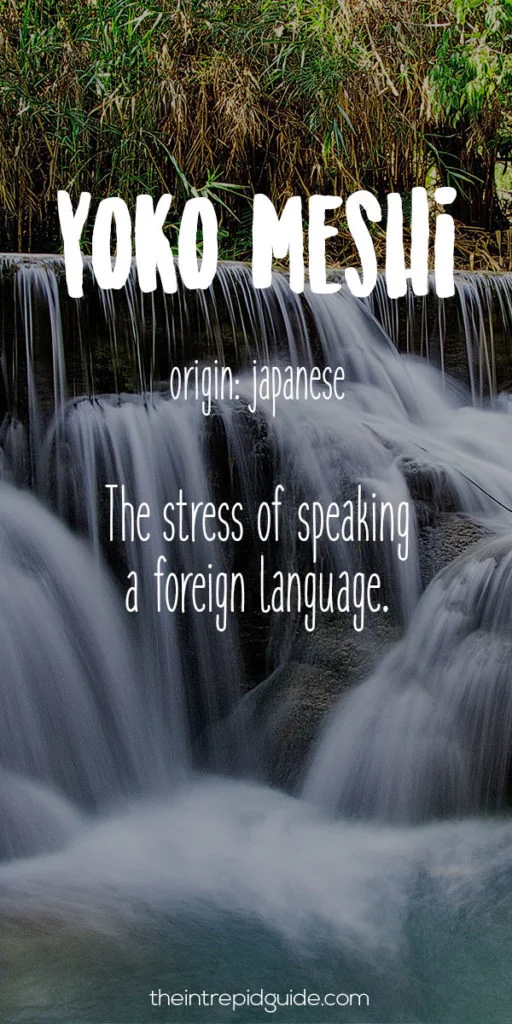

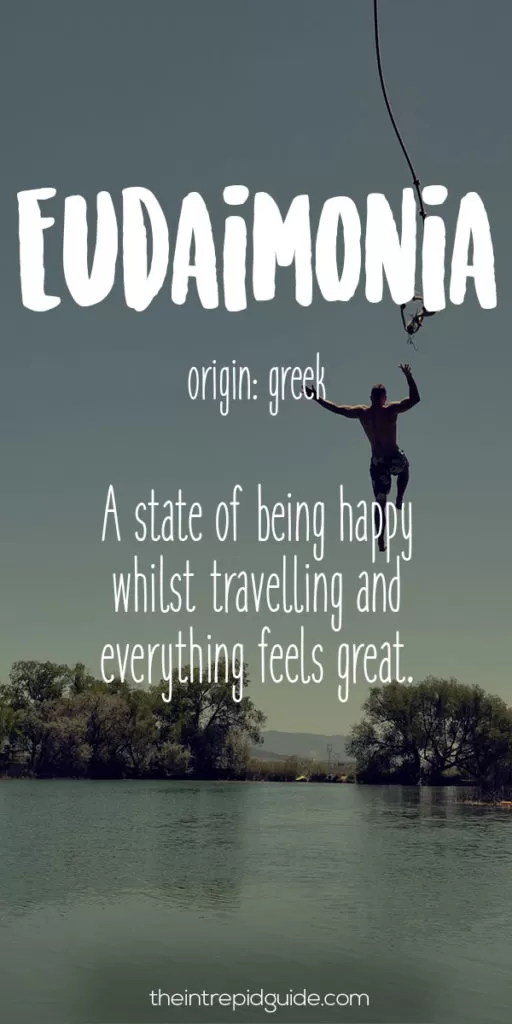
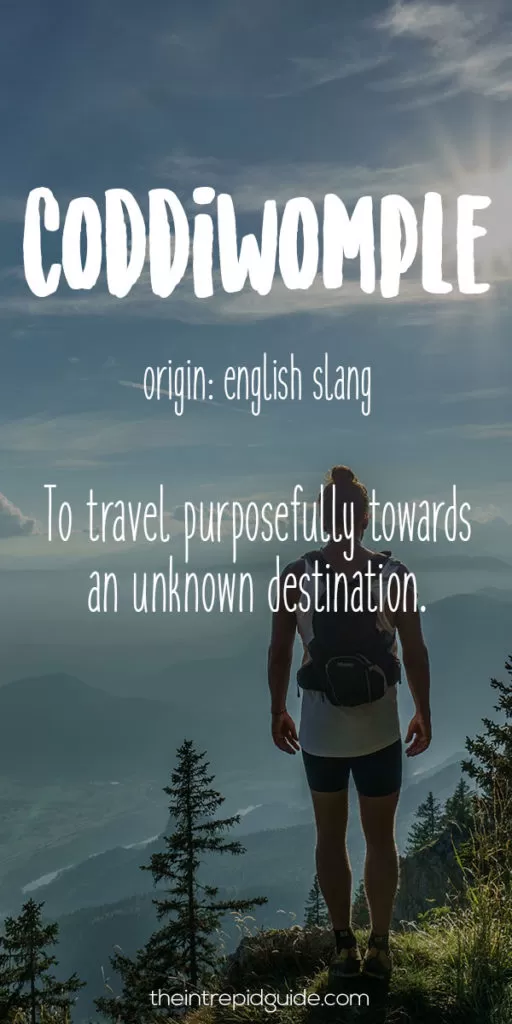
12 comments
Amazing list! One word I’d add is the Dutch word “gezellig” or “gezelligheid” – similarly to hygge, it describes a feeling of warmth/comfort/coziness/quaintness in certain settings or around certain people.
Thank you so much for sharing this Heba. So interesting to learn that Dutch has a similar word 🙂
This is such a fun article! Love these words and phrases!
Glad to hear it! Thank you so much, Eric 🙂
So many of these describe me or my feelings about seeing the world. But, if I had to pick one, the one that best describes how I choose my destinations would be “selcouth”. I so want to be a stranger in a strange land. To have my belief that there is no such thing as “normal” affirmed again and again and over again.
What a beautiful word. Thanks for sharing, Janet 🙂
Thanks Michele what a wonderful list of inspirational words. It nearly made me cry as I realised that I suffer from acute eleutheromania! ha
Thanks Juliana 🙂 I’m so glad you enjoyed this list. Eleutheromania? I know how you feel hehe
Unique list i must say – If you want to add one more word than check this !
In Hindi language (India) traveler called as “Musafir”
thanks Niraj 🙂
Thanks for sharing this! Really enjoyed it a lot ❤
Thanks Donah, I’m so glad you enjoyed it 😉